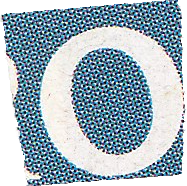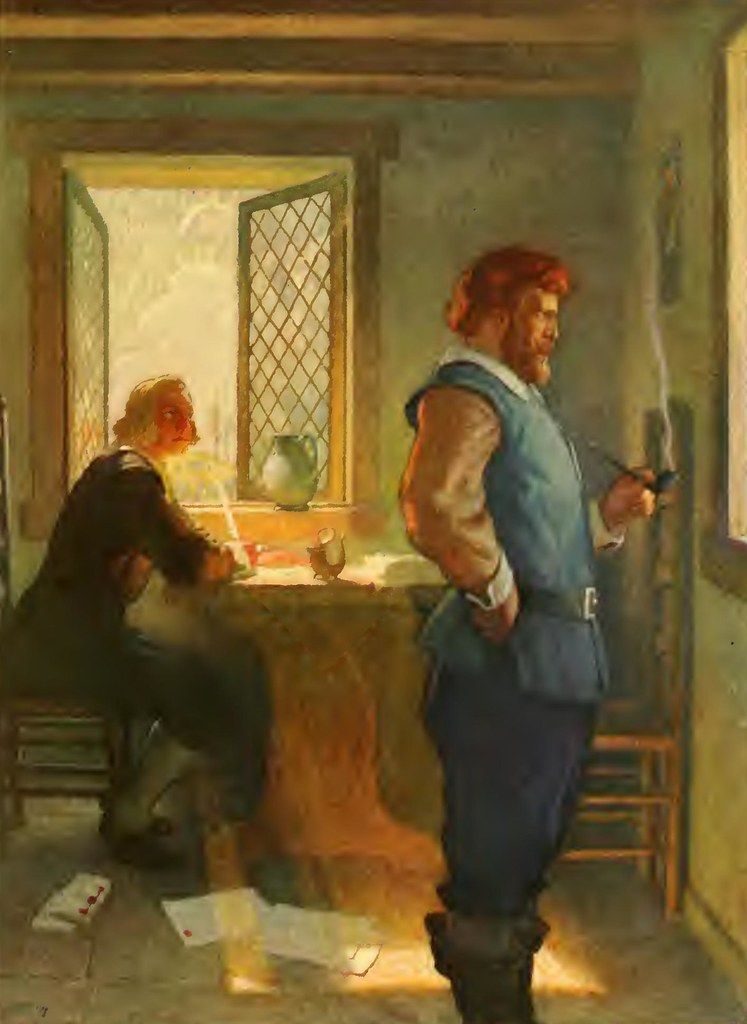 ne of the fun things about being an expat in France is when French people tell you what’s what in America. Now, let it be said right away that French people know American geography quite well. When asked, what is the capital of New York State, the American says, that’s easy: New York City. Well, no, actually, the French person would say. It’s Albany.
ne of the fun things about being an expat in France is when French people tell you what’s what in America. Now, let it be said right away that French people know American geography quite well. When asked, what is the capital of New York State, the American says, that’s easy: New York City. Well, no, actually, the French person would say. It’s Albany.
RUNNING AMUK
However, there are some fanciful versions of America running around loose in Paris. There’s a chain of restaurants called the Indiana Café. Quite popular. It’s a wannabe Mexican restaurant, which presents an enchilada in the following manner. Let me take a crepe, says the chef to himself, and then melt our famous gruyere cheese in it. And we will cover it with pasta sauce, because the French palate is raffiné (refined), too refined, in fact, for spicy foods.

The next step at our Indiana Café will be designing placemats. Of course, Indiana is the state where the Indians live, naturellement, n’est pas (naturally, right?) Why else would it be called Indiana? And so the placemats have pictures of different native tribes all stuck on a drawing of the state of Indiana.
ASIDE
So just now just for fun, I decided to ask our friend Google what native Americans do live in Indiana?
Here’s the answer: “Indiana was the historic homeland of many Native American tribes including the Shawnee, Miami, Wea, Potawatomi, Delaware, Wyandot, Kickapoo, Piankashaw, Chickasaw and others. These tribes were removed from the state through a series of treaties in the late 18th and early 19th centuries.”
ME: Damn!
READER: See, the French know their history.
ME: Okay, at first glance, I concede. But something does not strike me as quite right.
BREAKING UP WITH GOOGLE
For one thing, Delaware, which is along the east coast, is far from Indiana. And voilà. It turns out that this tribal group lived along the Delaware River, not in Indiana. Ever. The Delaware flows south from New York, down to Pennsylvania, through New Jersey and, yes, Delaware, on its way to the Atlantic. Google, what were you thinking? And the Chickasaw, too, have never laid eyes on Indiana. This tribe settled in the thick forests of northern Mississippi, western Tennessee, northwestern Alabama, and southwestern Kentucky.” So much for their historic homelands in Indiana. The tribe is currently located in Oklahoma.

READER: University of Notre Dame is located in Indiana.
ME: Exactly. That’s about it. (Message me if we have left out something about Indiana.)
THANKSGIVING
Now imagine our Indiana café chef is let out the door to talk about Thanksgiving. Here is the photo a recent columnist came up with. I realized I have never had French fries onThanksgiving. This holiday is not really celebrated in France, btw, unless you go to a restaurant with an American vibe, like Joe Allen’s near Chatelet. And it is called Thanksgiving in France, not days of grace or giving. If our Indiana Café chef were to wax eloquent about Thanksgiving, here’s what he’d say.

The following is taken from a recent post in French. « Thanksgiving, c’est la fête américaine qui célèbre depuis plus de 500 ans l’Action de Grâce. Initialement dédiée à la prière pour remercier Dieu de ses bienfaits et surtout des bonnes récoltes, cette fête est devenue laïque et un jour de congé lui a été consacré. »
Here’s the translation: “Thanksgiving is an American holiday, celebrated for more than 500 years as a holiday called the Action of Grace. Initially dedicated to prayer to thank God for his beneficence and especially the good harvests, this holiday had become a non-religious day of vacation.”
READER: They left out a lot.
ME: The Macy’s Day Parade, for one thing.

In this spirit of jumbling the two languages and two cultures, French and English, here’s a famous irreverent (offensive in parts?) post by a columnist, Art Buchwald, (who is no longer with us), about Thanksgiving with a French twist.
“Le Merci Donnant by Art Buchwald
“One of our most important holidays is Thanksgiving Day, known in France as le Jour de Merci Donnant. [The day of thank you giving]
“Le Jour de Merci Donnant was first started by a group of Pilgrims (Pèlerins) who fled from l’Angleterre [England] before the McCarran Act [an act to prevent subversive activities in America] to found a colony in the New World (le Nouveau Monde) where they could shoot Indians (les Peaux-Rouges) and eat turkey (dinde) to their hearts’ content.
“They landed at a place called Plymouth (now a famous voiture Américaine [American car]) in a wooden sailing ship called the Mayflower (or Fleur de Mai) in 1620. But while the Pèlerins were killing the dindes, the Peaux-Rouges were killing the Pélerins, and there were several hard winters ahead for both of them. The only way the Peaux-Rouges helped the Pélerins was when they taught them to grow corn (maïs). The reason they did this was because they liked corn with their Pélerins.
“In 1623, after another harsh year, the Pélerins’ crops were so good that they decided to have a celebration and give thanks because more maïs was raised by the Pélerins than Pélerins were killed by Peaux-Rouges.
“Every year on the Jour de Merci Donnant, parents tell their children an amusing story about the first celebration.

“It concerns a brave capitaine named Miles Standish (known in France as Kilomètres Deboutish) and a young, shy lieutenant named Jean Alden. Both of them were in love with a flower of Plymouth called Priscilla Mullens (no translation). The vieux [old] capitaine said to the jeune [young] lieutenant: “Go to the damsel Priscilla (allez très vite chez Priscilla), the loveliest maiden of Plymouth (la plus jolie demoiselle de Plymouth). Say that a blunt old captain, a man not of words but of action (un vieux Fanfan la Tulipe) [a rogue trying to escape a shotgun marriage in the time of Louis XV, who becomes a soldier], offers his hand and his heart, the hand and heart of a soldier. Not in these words, you know, but this, in short, is my meaning.

“‘I am a maker of war (je suis un fabricant de la guerre) and not a maker of phrases. You, bred as a scholar (vous, qui êtes pain [bread] comme un étudiant), can say it in elegant language, such as you read in your books of the pleadings and wooings of lovers, such as you think best adapted to win the heart of the maiden.’
“Although Jean was fit to be tied (convenable à être emballé), friendship prevailed over love and he went to his duty. But instead of using elegant language, he blurted out his mission. Priscilla was muted with amazement and sorrow (rendue muette par l’étonnement et la tristesse).
“At length she exclaimed, interrupting the ominous silence: “If the great captain of Plymouth is so very eager to wed me, why does he not come himself and take the trouble to woo me?” (Où est-il, le vieux Kilomètres? Pourquoi ne vient-il pas auprès de moi pour tenter sa chance?)
“Jean said that Kilomètres Deboutish was very busy and didn’t have time for those things. He staggered on, telling what a wonderful husband Kilomètres would make. Finally Priscilla arched her eyebrows and said in a tremulous voice: “Why don’t you speak for yourself, Jean?” (Chacun a son gout [Everyone to their own taste].
“And so, on the fourth Thursday in November, American families sit down at a large table brimming with tasty dishes and, for the only time during the year, eat better than the French do.
“No one can deny that le Jour de Merci Donnant is a grande fête and no matter how well-fed American families are, they never forget to give thanks to Kilomètres Deboutish, who made this great day possible.”
READER: Miles Standish?
ME: Apparently, he was at the first three-day Thanksgiving in 1621 ordered by Governor William Bradford of Massachusetts. He was disliked due to his brutal treatment of the native Americans. He retired as a soldier and became a dairy farmer.
READER: I have never given a thought to Miles Standish in my life, never mind thanks.
ME: Well, this column is a mish-mash if ever there was one: language, culture, content. The idioms are delightfully bad in French. For example, if you make war, you use the verb faire, not fabriquer, which is something you do in a factory, i.e. make things. Ooof! (Yikes!)
GODOT
Once he gets word of the festivities, even Godot will show for Thanksgiving! He’d bring along the cast and the author, and all would completely ignore Miles Deboutish.
Happy Thanksgiving à tout le monde (everybody)!
Saperlipopette!
Thanks for giving us these stories!
You (and Art B.) made me laugh out loud ! Thanks for YOU, on this holiday. Next up….NOEL !